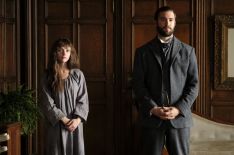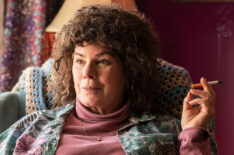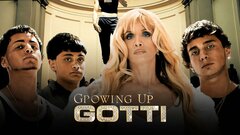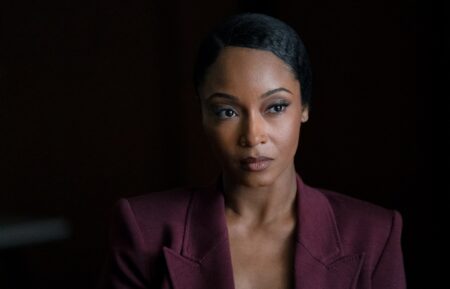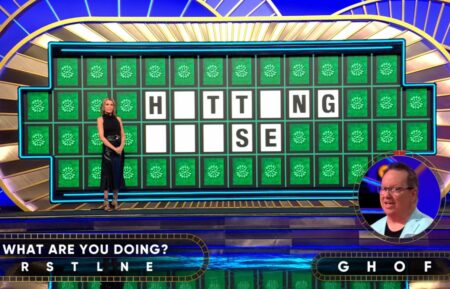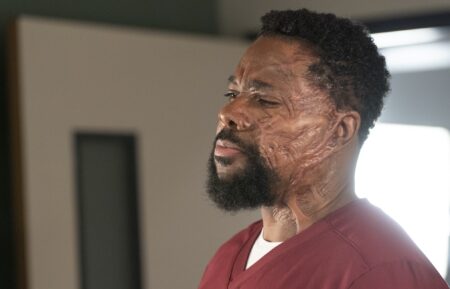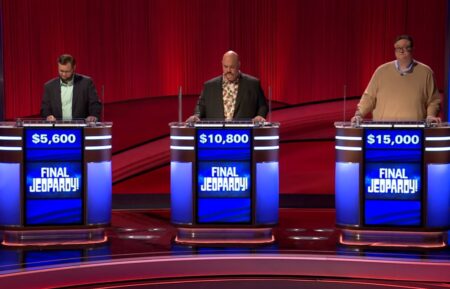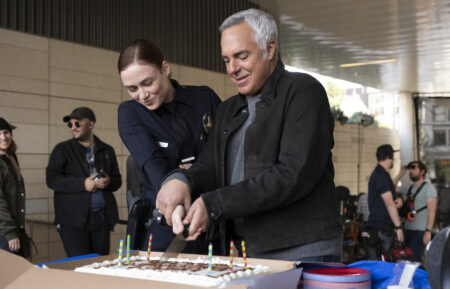‘My Father’s Daughter’: Victoria Gotti on Why She Chose Maurice Benard to Play Her Dad
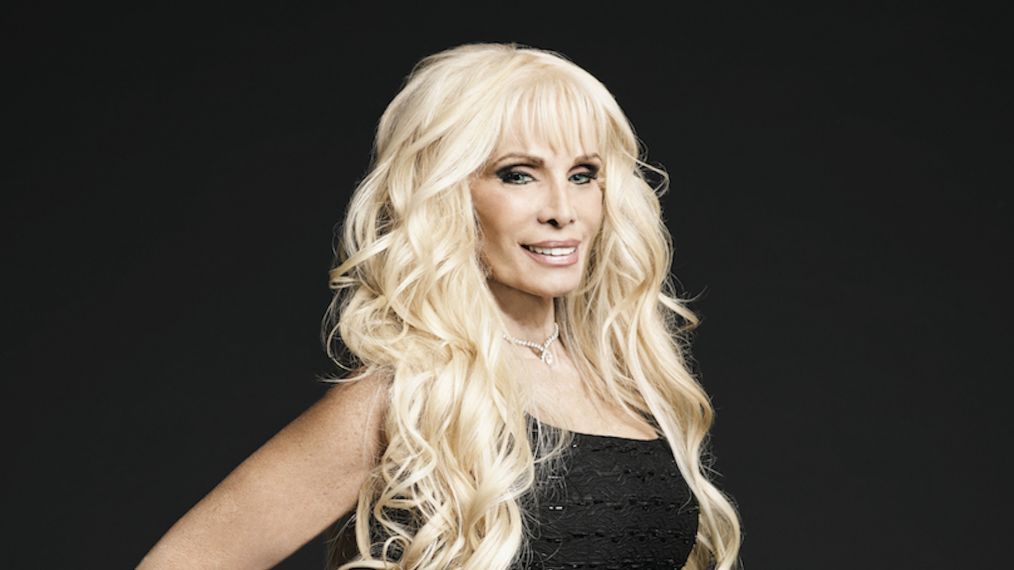
Q&A
There have many stories told about late mob boss John Gotti, but now, his daughter, Victoria Gotti, is telling her version of what really happened and what the dynamic with her father truly was. Gotti both executive-produced the film and co-wrote the teleplay to get the story right. And who better to play her dad than Maurice Benard, who brings to life crime lord Sonny Corinthos on General Hospital?
Actress Chelsea Frei (Sideswiped) plays Victoria in the film and the story covers what it was like constantly worrying about father, the tragic loss of her younger brother, and her rocky romance with the man who later became her husband. Read on to get Gotti’s views on what she wants people to learn about her father, and the legacy of her reality series Growing Up Gotti.
Why did you want to tell this story?
Mostly because of the stories that are out there that have been about me. This isn’t the story we’ve seen before in the movies or on the HBO movie [Gotti]. This is my story and about [clearing up] all the untruths. This movie has been in development for four years. We got started twice and then we stopped. I didn’t like the script – not that [previous scripts] were offensive, it just wasn’t ‘right’ enough. I didn’t think anyone would want to watch it. I said let’s wait till the right script comes along. The writer we had did not do what we all expected so I ended up writing it. Thankfully, everyone liked it, but they said – and this is the joke – ‘the only problem is you’ve written a $30 million movie. That’s never going to happen.’ So, we cut it up.
I thought it was time to tell a story about things that years ago people didn’t deal with. Nobody talked about manic depressive disorders [which Gotti’s late husband, Carmine ‘the Bull’ Angello was diagnosed as having]. Things were kept quiet. Divorces aren’t something that people always talked about. Also, my kids would go to school and [hear things about their grandfather] and I’d say, ‘Oh, it’s not true. Keep your heads up high.’ I wasn’t thinking at the time that they’re [just] kids.
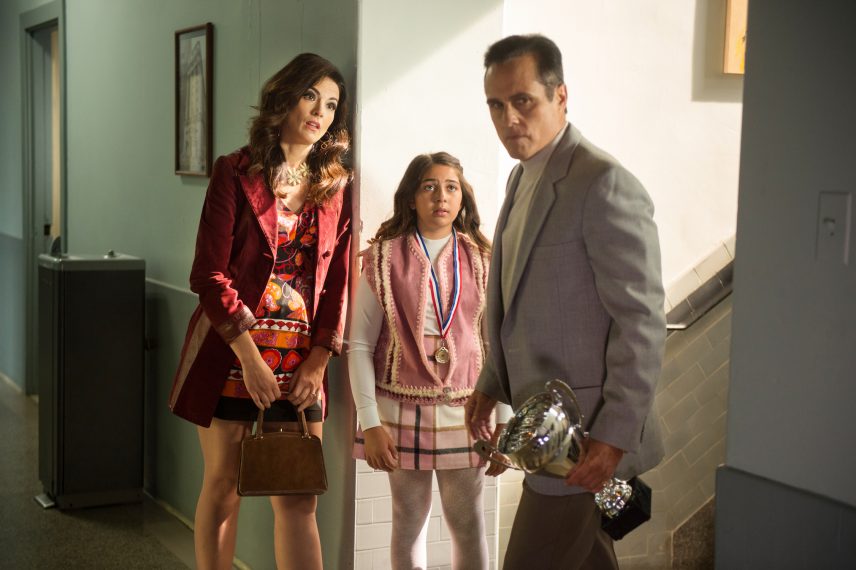
(L to R) Rhonda Dent, Zoey Siewert and Maurice Benard (Lifetime)
Did you do the story or dialogue for this movie? Or both?
I did both.
What did you learn about writing dialogue?
I had no clue when I started. DramaQueen [a scriptwriting program] helped teach me. I didn’t think I’d ever write. Writing a book is writing a book. Writing a screenplay is writing a screenplay. When people ask me for writing advice, I tell them about DramaQueen. I studied that program inside and out. It formats it all for you. You have to learn. It gets tedious, but a prompt will come up and tell you if you’ve made a mistake.
Do you want to write more movies?
I’d love to. I love to write. I love being behind the cameras and when I wrote my column at the New York Post.
What was it about Maurice Benard that made you want him to play your dad?
I grew up on him, watching him on General Hospital where he plays Sonny Corinthos. That’s a character we thought was very parallel to what we needed. Whenever anyone would ask me, ‘Who in Hollywood do you see playing your dad?’ I could honestly not come up with anyone. When one of the network heads brought up his name into the mix, I said, ‘That’s not a bad choice. That’s a good one.’ Other than [Maurice] I had no other name in my head. Then I saw him when we were on set in Vancouver. I had my executive producer hat on and we watched him do his thing for a couple of days. He was very good. I was like, ‘Wow, this is as good a match as we thought it would be.’
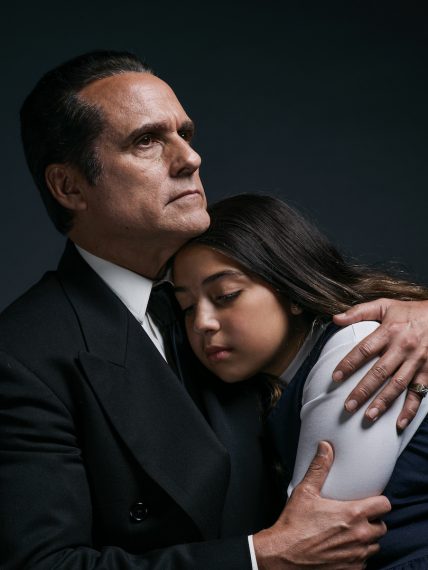
(L to R) Zoey Siewert and Maurice Benard (Lifetime)
How do you look at his performance and say, ‘We don’t see Sonny?’
I think it’s inevitable [that we do on some level]. I thought from the beginning that we would, but that might even help him getting into character. He’s played [Sonny] for years, consistently.
Throughout the film, you appear as yourself as a talking head, explaining certain parts of your life, expanding on scenes. It’s very effective. Why did you decide to do that?
After I wrote the first draft, I showed the script to [a magazine] editor friend of mine. He’s a gifted editor and he said, ‘This is good, but I know you’ve got more in you. I want you to write more of the voiceovers. Write three or four more into them and then send it to me.’ I took his advice and I went with it. And, now, here we are.
Were there misconceptions about your father that you wanted to clear up?
Oh, yeah. One was that he came home for dinner and discussed the family business [in front of us]. You couldn’t even mention that in my house. My father felt if you weren’t present at Sunday dinner with the family you better have a darn good excuse. Whether you were single or partnered, you had to be there. This gave everyone a chance to let everyone know what everyone was up to. Before my father died, and he never said ‘die’ or ‘pass,’ he’d say, ‘once I go,’ he said, ‘Promise me, you’re never going to shy away from having or let go of the Sunday dinners.’ I said, ‘You think I’m worried about Sunday dinners?’ He said, ‘You don’t understand. If you [lose them] the whole family will splinter.’ So, I woke up on a Friday and said, ‘Saturday, I’m cooking all day, and I’m calling everyone and saying come over on Sunday.’ We started doing it again. We still do.
Did you ever miss a dinner?
No. I never missed one when he was alive. Nobody would unless they were very sick. And if you were, you’d come downstairs and make an appearance. If you were married and had your own children you had to be there, he’d get really upset if he didn’t see the grandkids.
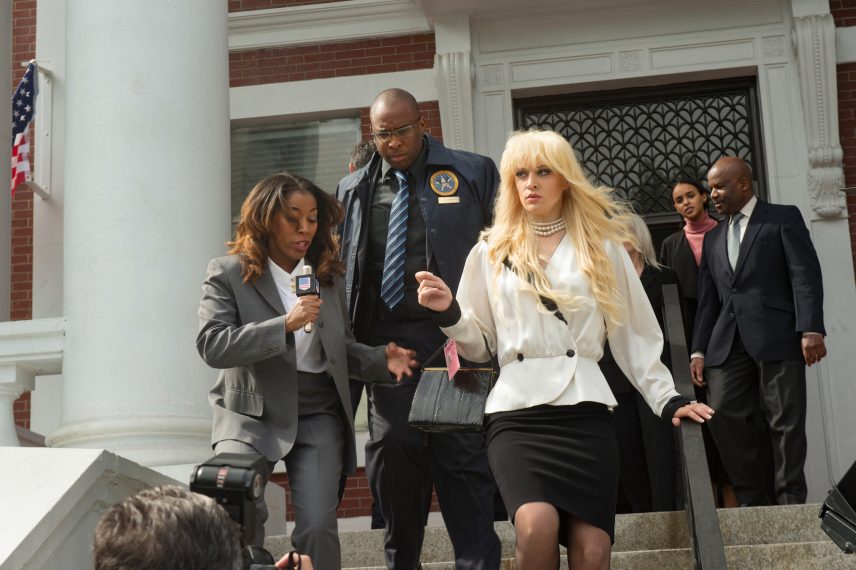
Chelsea Frei (Lifetime)
How do you think your reality series, Growing Up Gotti, which aired in 2004-05, affected the reality TV landscape?
I’m not sure if we should get credit or be penalized. We did what a lot of people were afraid to do but wanted to. They weren’t daring enough. [After our show], suddenly, the floodgates opened up. Everyone was ‘Pick me, pick me [for a show].’
What would you like people to walk away with knowing about you, your dad, and your family that they might not have known before?
That as much as my father and I were alike, we also had a lot of conflict. I think about what he taught me. He taught me to be strong, to stay strong. I would use those words back at him [when I felt I needed to] and he didn’t like that very much. He’d tell me someone wasn’t good enough for me or ask why didn’t I see something a certain way, and I’d use that back at him. That was ironic. But I think he appreciated me for that.
Victoria Gotti: My Father’s Daughter, Saturday, February 9, 8/7c, Lifetime


